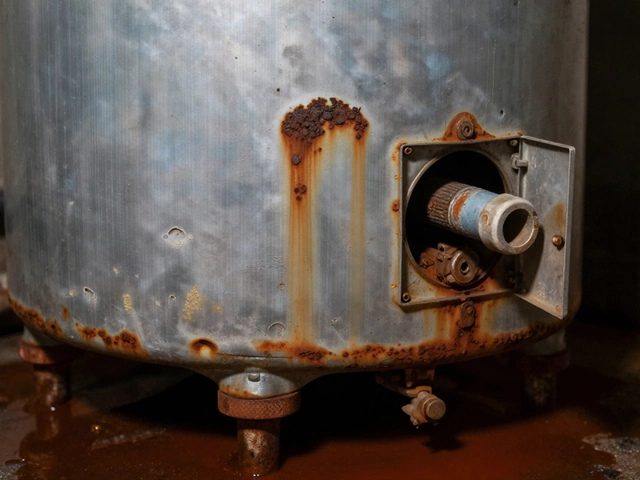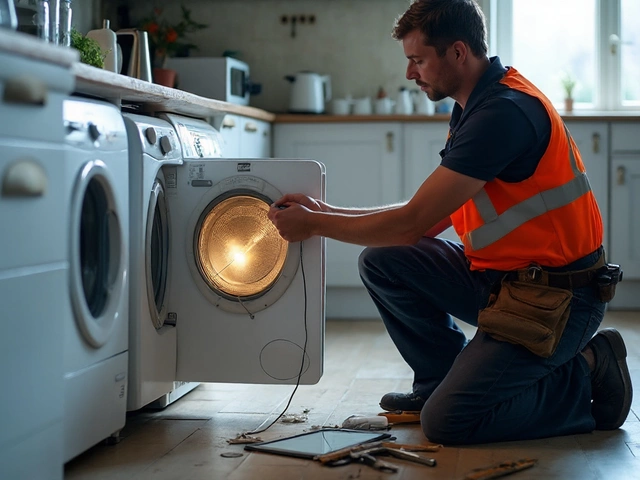Got a cooker that’s acting up? Before you call a pro or toss it out, take a quick look at the symptoms. A few common issues – like an oven that won’t heat, burners that flicker, or strange smells – can often be fixed for a fraction of the price of a new unit. On the other hand, old appliances may be costing you more in energy bills and repairs than a fresh, efficient model would.
First, unplug the cooker and check the obvious things. A loose knob, a broken heating element, or a tripped safety switch are easy fixes. If the oven isn’t heating, use a multimeter to test the element – a continuity reading means the element is fine, and the problem is likely the thermostat or control board. For gas cookers, a hissing sound or uneven flame points to a gas valve issue that a qualified technician can replace.
Next, consider the age of the appliance. Most cookers last 10‑15 years with proper care. If yours is under that range and the fault is isolated (like a single burner), repairing is usually worth it. Keep an eye on the cost of parts; a new burner or thermostat typically runs under £50, and many DIY guides walk you through the swap in under an hour.
If the cooker is more than 12‑15 years old, you’re probably staring at higher energy use and more frequent breakdowns. Modern cookers are far more efficient and often come with safety features that older models lack. Ask yourself: will the repair cost be more than half the price of a new unit? If yes, replacement makes sense.
Another red flag is multiple failing components. If the oven, hob, and fan all need work, the combined labor and parts can quickly add up. In that case, a new cooker not only solves the immediate problems but also gives you a warranty and lower running costs.
Before you dump the old unit, think about recycling. Many local councils offer free bulky‑goods collection, and some retailers will take the old appliance when they deliver a new one.
Whether you decide to fix or replace, safety comes first. Always disconnect power or gas, wear gloves, and follow manufacturer instructions. If anything feels beyond your skill level – especially gas work or major electrical repairs – call a certified technician. A quick call can save you from costly mistakes and keep your kitchen safe.
Bottom line: check the age, identify the fault, compare part costs, and weigh energy savings. With a little detective work, you’ll know if a simple fix will get your cooker back in shape or if it’s time to upgrade to a newer, more efficient model.

Thinking about repairing your cooker? This guide covers repair costs, when to fix or replace, and expert tips to help you decide what's best.

Ever wonder if switching your boiler on and off harms it? This article unpacks how boilers handle frequent power cycles, what really wears them out, and when switching off could save you cash or cause problems. Find out the best ways to run your boiler for both safety and savings. Practical tips and real facts—all in plain English. Avoid costly repairs by knowing how to treat your boiler right.

Water heaters commonly fail due to heating element burnout, thermostat issues, corrosion, and sediment buildup. Learn the top causes and how to spot them early to avoid costly repairs or sudden breakdowns.

Front-load tub/drum assemblies and top-load transmissions are usually the priciest washer repairs. See real costs, how to diagnose, and when to fix or replace.

Microwave suddenly dead? It might be the fuse. This article breaks down the real cost of repairing a microwave fuse—parts, labor, hidden fees, and whether you should DIY. You'll get practical tips on when to call a pro, what brands cost more, and how to avoid common mistakes. A straightforward guide to help you fix your microwave without overspending.

Wondering when to replace your cooker? This article breaks down the real signs that your cooker is on its last legs, what affects its lifespan, and how to keep it running safely for longer. Get practical tips straight from real-life experience and find out how to spot issues before they turn expensive. Whether you use gas or electric, knowing when to repair or replace makes all the difference in your kitchen.